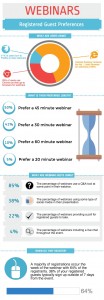
If you’ve ever been to an interview, then you’ll know how difficult it can be to tell a hiring manager about a time you made a mistake, and that’s exactly why so many of them will ask it. It takes you outside of the environment that focuses on presenting yourself in the best possible light and asks you to present something negative about yourself.
Of course, the hiring manager understands that you might not be completely candid and tell them about an unprecedented catastrophe, but equally the question is not there just to make candidates squirm. They don’t expect any candidate to have a perfect history, but they do want to find out how capable you are of acknowledging, resolving and bouncing back from your error
Don’t say you’ve ‘never failed’
Firstly, it’s just not very believable to dodge the question; if you can find a way to spin this answer so that you come off in a positive light then please let me know, but I certainly can’t think of one. At best, you come off as arrogant and at worst completely delusional. Either way you’re likely to come off as dishonest, which is never a good idea in a job interview!
More importantly, you don’t want them to believe that you’ve never failed; if you’ve never failed it probably means you’re unnecessarily risk-averse which can be a sign of someone who completely lacks creativity, innovation and the ability to problem-solve. Also, we learn a lot from our mistakes, so never failing can seriously hamper your self-improvement.
For the record, the same goes for ‘I can’t think of one right now…’; never committing to an answer is rarely a good idea.
Keep it professional
Another big no-no is to bring up mistakes you’ve made in your personal life outside of work. At the end of the day, the point of the interview will be to find out what you can add to the business and by talking about your inability to hold down a relationship or an argument you had with your best friend then you’re failing to keep it professional and relevant.
Equally, try to stay away from mistakes or serious character flaws that might seem like they can’t be solved. You may well have lost a client because you said something completely inappropriate or lost your temper and shouted at your boss but it’s best to keep these mistakes to yourself. You don’t want the hiring manager to think that you’re volatile and capable of tripping up in the same way again.
Keep it Honest
Another rule of thumb to go by is to keep it honest and wherever possible draw from genuine experience. It’s a hiring manager’s job to work out when somebody is giving them a crafted, dishonest answer and it’s probably not worth the gamble, especially since the chances are that you’ll be able to call on a time when you genuinely learnt from dropping the ball.
As we’ve already covered, tempering the honesty is key as you don’t want to share the wrong errors, but also avoid providing them with a ‘failure’ that’s really a covert brag or an allusion to your perfectionist nature. Answering the question by stating a moderate success or average accomplishment and selling it as a failure because that’s ‘not good enough for you’ is likely to come across as brash and unimpressive.
Team Failures can work
But don’t pass the buck! Discuss a time that your team failed in their goals, or dropped the ball on a certain task, but make sure that you focus on your involvement in the failure. If you chose to focus on the group mistake, you’ll come across as someone who is unable to acknowledge their own role, but by focusing on what you did wrong in the wider team context, the hiring manager will subconsciously consider that you’re not totally culpable.
Leave the details out of what other people got wrong on that occasion and they’ll fill in the blanks themselves.
The key is the resolution
The most important part of how you answer this question is how you explain the fix. If the problem came up again, or you failed to provide a resolution then it’s probably time to think of another mistake!
Start off by discussing how the company approached the mistake and sought to put systems in place to ensure it didn’t happen again. Try and think of a time where you took an active role in implementing a new system of work, whether that be working with a manager to explain that it needs to be done or taking charge of a new way of working within the company.
Finally, given that you should have made clear that there was some personal accountability to the mistake, consider how you sought to make active steps to improve your own approach. This could be ensuring you pursued sales training after falling short on a negotiation or implementing a new system of organisation after you dropped the ball because you missed out something important
With preparation, this question could actually be the one that gets your hired. Because it can fall in a different context to the rest of the interview, namely of self-promotion, it can actually provide a more genuine insight into to a potential employer on your personality, how you work and the way in which you learn.
Business & Finance Articles on Business 2 Community(55)
Report Post






